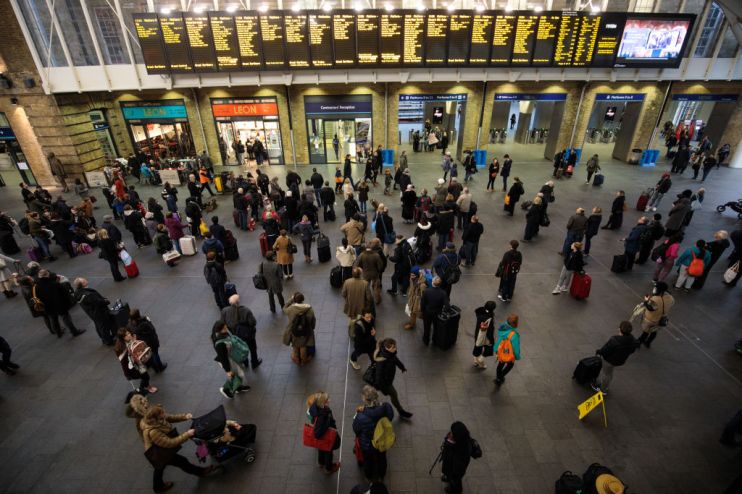Rail fares have risen twice as fast as wages over past decade, says union

Rail fares have risen twice as fast as wages in the past decade, new analysis by the TUC trade union has found.
The figures show that rail fares, which are pegged to the Retail Price Index (RPI) inflation measure, have risen by 46 per cent since 2009, while nominal weekly earnings have only grown by 23 per cent.
Read more: Commuters braced for another rail fare hike
The union’s findings come as the government is set to announce another rail fare hike today of three per cent.
Campaigners have long urged for rail fares to hinge on the lower Consumer Price Index (CPI), which generally grows at a slower rate.
The Campaign for Better Transport said fares could increase on average by £131 based on an RPI figure of three per cent.
For example, a 12-month season ticket from Sevenoaks in Kent into London could increase by £108, while the same ticket from Reading into London could go up by £138.
TUC general secretary Frances O’Grady said: “The last thing UK commuters need is another hefty fare increase. We’re already paying the highest ticket prices in Europe to travel on overcrowded and understaffed trains. “
The government controls about 45 per cent of fares that are regulated, including season tickets and some commuter routes around cities.
The rest are influenced by train firms as part of their franchise agreements with the government.
Read more: Majority of Londoners support TfL control over commuter rail services
Rail minister Chris Heaton-Harris said: “It’s tempting to suggest fares should never rise. However, the truth is that if we stop investing in our railway then we will never see it improved.
“My priority is to get the trains running on time, which is why are investing a record £48bn to modernise our network, boost reliability and create a railway fit for the 21st century.
“Keith Williams is also producing recommendations to reform our railways and put passengers first, and we expect to receive these later this year.”
Robert Nisbet, director of nations and regions for the Rail Delivery Group, which represents the train operators and Network Rail, said: “No one wants to pay more to get to work but by holding rises down to no more than inflation, government is ensuring that money from fares continues to cover almost all of the day-to-day costs of running rail services. This means private sector and taxpayer money can go towards improving services for the long term.
“We know we have more to do to deliver the reliable services passengers expect but rail users across the country are already seeing and feeling the benefits of this investment with new trains and more services running across the country.”